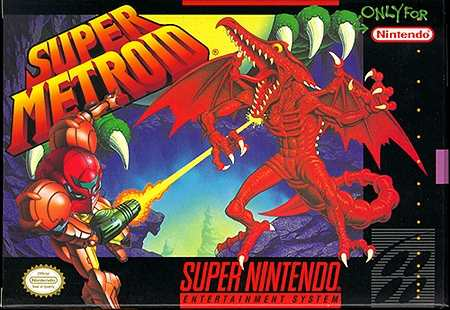If you listen to the Player One Podcast, you may be familiar with the Game Club segment, where we play an older game and then break it down on the show. This past week, co-hosts Chris Johnston, Greg Sewart, Phil Theobald, and I talked about one of the big boys: Super Metroid.
I was especially excited, since this was my first time playing the Super Nintendo's classic action-platformer, and with it came big expectations. This is, after all, the title EGM named the No. 1 game of all time back in 2003.
And while I had fun navigating Samus through the open-ended planet Zebes, I couldn’t help shake the “Is this it?” feeling.

Naturally, part of this is due to those high expectations. After hearing such great things about this game for over 15 years, is it any wonder I expected perfection? And yet these expectations made the negatives stand out that much more.
For example, I found Super Metroid’s wall jump to be among the worst I’ve used — and this is an ability most platforms handle as easily as pressing right to run. The inconsistent space jump and finicky grappling hook also succeeded at keeping me frustrated.
As I said above, though, I enjoyed the game a lot; that thrill of exploration when you discover a new item and return to a previously inaccessible area stands tall. It pretty much defined its niche in the genre, something not many games can claim.
 And so while considering the good and the bad, I have to ask: Should we still heartily recommend a game multiple generations old if it no longer represents what games can do best? Is it OK for a game of such lofty stature to age merely adequately instead of gracefully? I wonder this since Super Metroid’s faults pushed me to the brink of quitting, with me soldiering through for the purposes of the show. Would a relatively new gamer benefit from playing that, or would they benefit more from a timeless game — Tetris, for example — in addition to some more modern classics?
And so while considering the good and the bad, I have to ask: Should we still heartily recommend a game multiple generations old if it no longer represents what games can do best? Is it OK for a game of such lofty stature to age merely adequately instead of gracefully? I wonder this since Super Metroid’s faults pushed me to the brink of quitting, with me soldiering through for the purposes of the show. Would a relatively new gamer benefit from playing that, or would they benefit more from a timeless game — Tetris, for example — in addition to some more modern classics?
I’ll end my ruminating with an analogy: One of my favorite movies, the original King Kong, doesn’t suffer by its medium’s limitations of the time, including being in black and white and featuring crude special effects. At least in my opinion. In fact, what may turn some people off to me gives the movie its charm, and yet I couldn't fault someone for dismissing it on those grounds.
Perhaps by not originally playing Super Metroid at an age before I looked at games so critically, I doomed this game — and my enjoyment of it — to an “interesting but flawed” appraisal. While I’m happy to have finally played it, I also don’t see it cracking my all-time top 10 list, either.
So now I ask you, readers: How well does a game have to stand the test of time? We’ve all probably been burned by a favorite game that didn’t age so gracefully, perhaps wishing we never went back to replay it at all. Should that count against it, or should it be allowed to live on its legacy, exploring the darkest regions of its own digital planet indefinitely?


